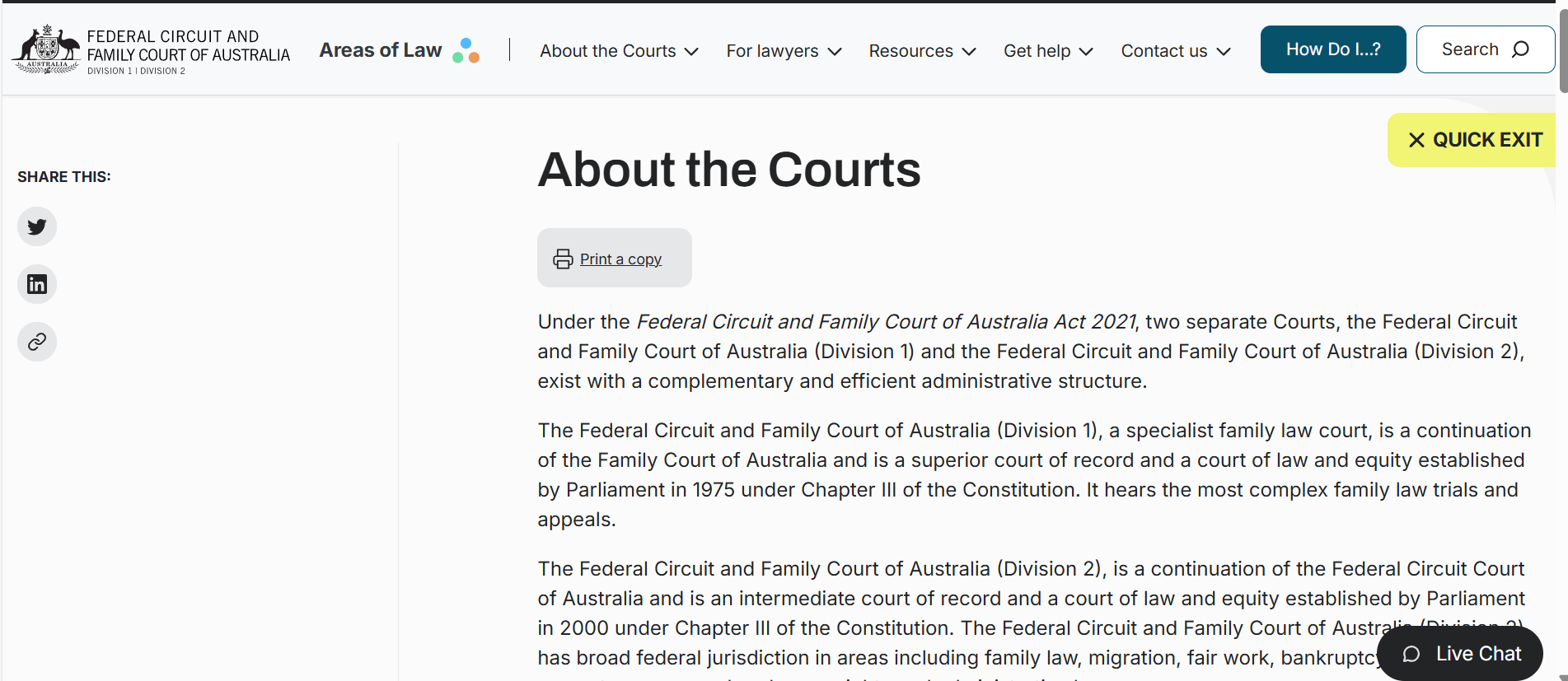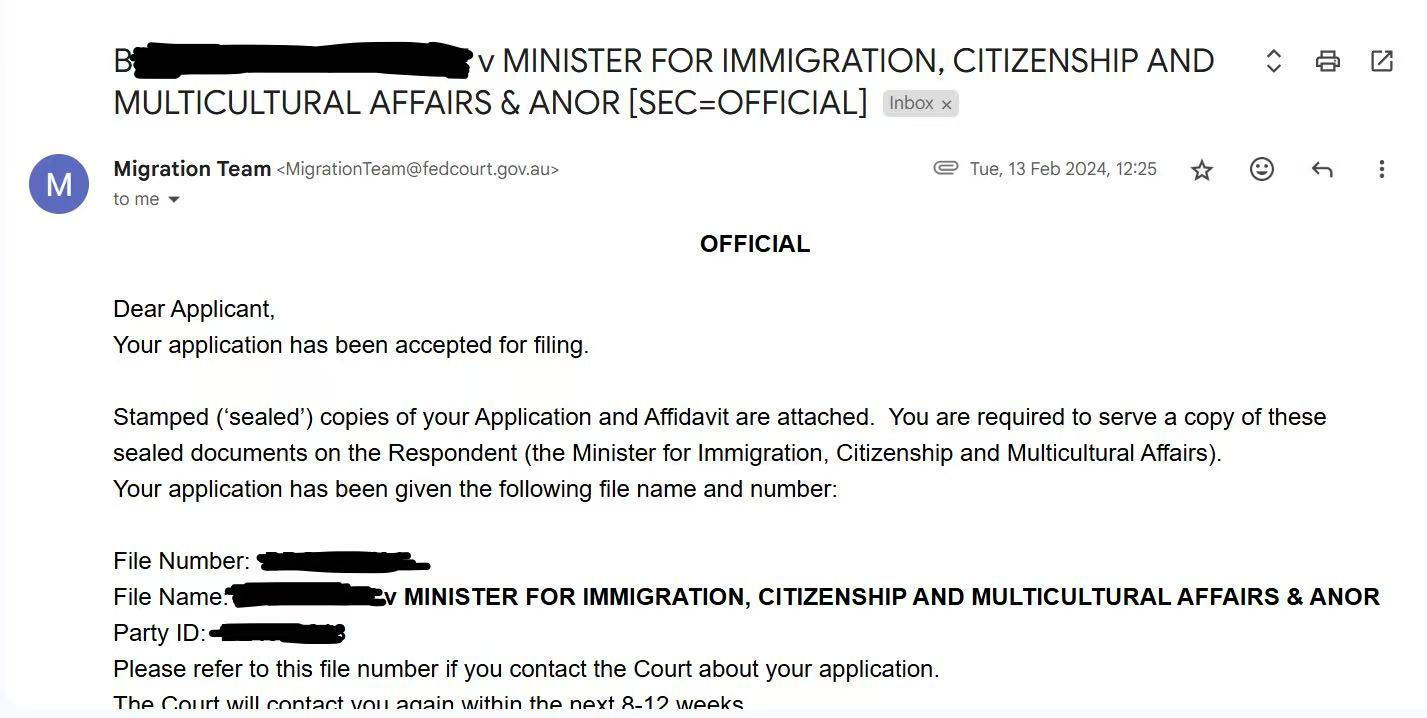When dealing with Australian visas or family disputes, many people come across the name FCFCOA. But what exactly does it do? As a registered migration lawyer, let me give you a quick overview 👇

What is FCFCOA?
The full name is the Federal Circuit and Family Court of Australia (FCFCOA).
FCFCOA is divided into two divisions:
Division 1: Mainly handles complex family law matters.
Division 2: Deals with most family law matters and all other federal law matters. It is a continuation of the former Federal Circuit Court.
Main areas of responsibility include:
Family Law Matters
Divorce
Parenting and visitation arrangements
Property division and spousal maintenance
Family violence orders
Migration Matters
Appeals of visa refusal or cancellation decisions from the AAT
Judicial review of decisions made by the Department of Home Affairs
Other Federal Matters
Employment disputes
Bankruptcy cases
Human rights and discrimination matters
Maritime law, copyright and other federal law issues
How did it come about?
Previously, Australia had two separate courts:
✔ Federal Circuit Court
✔ Family Court of Australia
To streamline processes and improve efficiency, the Australian Government merged them in 2021, creating the FCFCOA we have today.
How can it help you?
If your visa has been refused or cancelled, and you’ve already appealed to the AAT or it’s not within the AAT’s jurisdiction, you may apply to the FCFCOA for judicial review.
If you’re experiencing family disputes in Australia (e.g., divorce, child custody issues), this is the court to go to for legal support.
Timeframes
From lodgement to a scheduled hearing, the FCFCOA process typically takes 6 to 12 months, depending on the case type, complexity, judicial availability, and location.
The timeline usually involves several stages:
Lodgement
Case registration and file number allocation
Exchange of evidence and case management
First Court Date / Directions Hearing
Final hearing or judgment
Finalisation of the case
What does the applicant need to do?
🔹 Prepare your documents carefully: Provide supporting statements, evidence, and court documents based on your lawyer’s advice
🔹 Maintain lawful visa status: Ensure you hold a valid Bridging Visa to remain lawfully in Australia
🔹 Comply with court requirements: Respond to court directions on time, such as submitting affidavits or other written statements
🔹 Attend hearings if required: Whether online or in-person, always attend court sessions on time
🔹 Stay in touch: Maintain communication with your lawyer or representative to keep track of updates

With our professional legal expertise and hands-on experience, our team has successfully helped clients appeal to the Federal Circuit and Family Court of Australia (FCFCOA) — offering them a new chance for success!
💡 Follow us for more migration tips and legal insights.


Image source: https://www.fcfcoa.gov.au/

